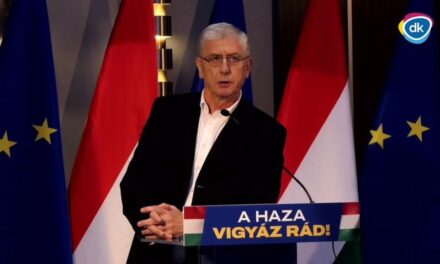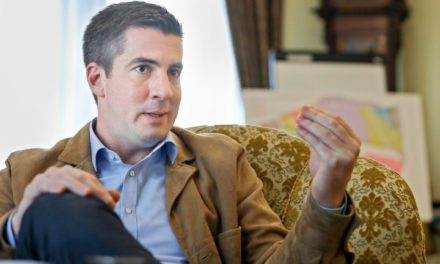Brussels' aspiration for a centralized, binding EU gas distribution is misguided, Olivér Hortay, Head of the Energy and Climate Policy Department of Századvég Konjunktúrakutató, stated on his Facebook page.
He drew attention to the fact that the European Commission is presenting its new emergency plans today, which would come into effect in the event of disruptions in the community's gas supply. Based on the preliminary information, the Commission would give itself new powers: in an emergency, it would centrally distribute the EU's gas reserves and force the member states to reduce their consumption, he added.
The plan faces representational and legal obstacles
Olivér Hortay stated that the aspirations of Brussels have deviated from reality for at least five reasons. In his opinion, it is primarily because the plan runs into representational and legal obstacles. Security of supply is the right and duty of the elected leaders of the member states. The Commission has neither the political authority nor the technical (legal, institutional, professional, etc.) preparation to have a say in the consumption of member states or the operation of gas storage facilities, he listed.
The EU institutional system is not able to react quickly enough
Secondly, based on experience, the EU institutional system is not able to react quickly enough, he stated. He explained that the clear lesson of historical examples is that the panic that develops when the energy supply is interrupted is at least as dangerous as the supply interruption itself. Therefore, in the case of a short-term or longer-lasting disturbance, quick and decisive reaction is crucial. In recent years, it has been shown in many cases that the EU institutions are not able to react quickly and efficiently. For example, the Commission has been working on its emergency regulations to be presented today for more than half a year, he pointed out.
It is hard to imagine that in an emergency situation, Brussels will make rational decisions
As a third aspect, Olivér Hortay drew attention to the fact that, after the sanctions efforts of the past months, it is difficult to imagine that Brussels would make rational decisions in an emergency. In his explanation, since the outbreak of the war, the European Commission has been working with all means to introduce sanctions affecting energy transport, despite the fact that it is clearly against the economic and security of supply interests of the community. Moreover, he did all this with highly questionable political means (media pressure, misinforming the population) and without sufficient professional justification. According to him, in an emergency situation, ideology-driven steps would have unforeseeable consequences, so the Commission's proposal is not only discredited, but also dangerous.
Central distribution is unfair
The fourth reason is that, according to the business manager, central distribution is unfair, because it would transfer resources from responsibly managed member states to irresponsibly managed member states.
He added that the supply of some countries is already in danger because their political aspirations (closing nuclear power plants, punishing Russia, etc.) have been put before the security of supply. With these, they caused costs in themselves for responsible economic countries; for example, due to the floating of sanctions, gas prices rose and filling the storage tanks became expensive. Moreover, in the past, irresponsible economic countries have consistently attacked responsible economic countries by saying that they are not doing enough for the "green transition" or that they are trading with Russia. Olivér Hortay pointed out that it is unfair and unjust for irresponsible countries to ensure the supply of irresponsible countries by "swallowing" previous costs, political attacks and endangering their own consumers.
The differences between emergency plans at the member state level do not allow for central coordination
As the last reason, according to which Brussels' efforts are irrational for at least five reasons, he indicated that the differences between emergency plans at the member state level do not allow for central coordination. He also described in his explanation that the gas shortage threatening Europe has forced the majority of member states to reconsider their emergency plans. For example, it seems that Germany will modify its disconnection plan and residential consumers will come forward to protect industrial consumers. In other countries (for example, Hungary), on the other hand, households enjoy an advantage over industrial actors. With central coordination, situations could arise where the Commission would satisfy the industrial needs of other countries by restricting the supply of protected consumers of one member state, Olivér Hortay explained on his Facebook page.
Source: magyarhirlap.hu
Photo: hirado.hu












